This interview wasn't created in the most streamlined way – we recorded the first part a year ago, but then life happened, and it ended up in a desk drawer for a long time. At that time, Maria went to work, and played Zoom on weekends, while taking the top 1 in 90% of cases.
Over the course of a year, Maria managed to play for the fund, tried her hand at PLO100, caught a down streak and returned to PLO25. She also successfully completed a marathon, in which she earned 100 buy-ins in two weeks, which is what the second part of the interview is mainly dedicated to.
– Maria, hi! You can objectively be called a grinder, given that in addition to poker you also have a job, a husband, a child and a cat. How do you manage to combine all this, because many people have difficulty even with the first point?
– To be honest, such questions always baffle me a little, because I don’t think that I manage to combine all of this fully and well. Sometimes it’s very difficult, because each area requires attention. Usually everything happens in waves – at different periods I’m more immersed in one thing, then another. I also set personal boundaries a long time ago – for example, evening time is reserved for my family, and neither work, nor poker, nor anything else can take up this time. I had to do this, because the evening is the only opportunity to spend time together.
– So you are the person who not only makes a schedule, but also sticks to it?
– It’s not that I make it up, it just happens) For poker, I have two windows a week, if I don’t sit down to play on these days, then I simply won’t be able to play a full session.
Yes, I have a schedule, but it is quite static, and once you make it, you can use it for quite a long time. For the most part, I start from work, it takes a lot of time, although it used to be even more.
– How do you divide your time between work and poker during the week?
– Considering the flexible schedule and the fact that I can do part of the work from home, the work takes from 30 to 60 hours a week.
Now I play on PokerOK , without leaderboards the rakeback is very small. In principle, well, okay, last summer I played regular tables, and I managed to show a normal win rate, so I can play for profit too.
Now on PLO25 with races I get about the same amount as I would earn on PLO50-PLO100 on regular tables. But I have a job and a family, so playing with races is much more convenient. I devote the evening to my family, I can't afford to play all night either, since I have meetings in the morning, and in general, I need to come to work with a fresh head.
I usually play two days a week, that is, on two leaderboards, at other times I do not open the client. I cannot sit down at the table if I have a free hour, because I can easily get carried away and an hour turns into 5-10.
– Where do you earn more – in the game or at work?
– There are months when poker brings in more, especially during the summer holidays. In general, I understand that even at the current level of play, if I remove work, I will earn more from poker. But I can’t remove work, because I love my job) I plan to reduce my working hours and achieve my long-time dream – a four-day work week.
– So now you have two days off, and you devote them entirely to poker?
It turns out like this.

– Tell us in a few words what it means to “play on the leaderboard” – how much time does it take, how intense is the competition there?
– PokerOK has a table where you can track your place and number of points in real time. These points are awarded for certain actions at the tables – one point for a fold, three points for a call and five points for a bet or raise. Accordingly, the faster you click the mouse and do some actions, the more points you get. On average, if you take a comfortable speed, then I get 2,500 points per hour. The race lasts 24 hours, Moscow time, it starts at 11 am.
– So, to take high places, you need to play more aggressively? Or does it not affect and the main thing is to play a lot?
– There are some tricksters who bet 1 bb on each flop to get more points. But you have to take into account that the rake in Omaha on PokerOK is quite high and it is taken from the preflop. With a fairly tight game, I get about 12 bb/100, but if I start playing a little wider, the rake reaches 15-16 bb/100. Beating such a rake is already quite problematic.
In general, you can play looser, but it will be difficult to finish even at zero profit. Although on PLO2, for example, it can be profitable, since there they give about 20 buy-ins for first place in the leaderboard. The higher the limit, the less profitable it becomes.
– What limit are you playing now and how much do they pay for first place?
– Now I play PLO50, per game day without jackpots the average is about $500, that is 10 buy-ins.
– How long do you usually play if you are fighting for the top 1?
– I was asked a similar question on the blog, and the person I meet at the tables answered that I play “all hours”. In principle, this is close to the truth, that is, it will not be difficult for me to play 15-16 hours per game day. Quite a lot of 20-hour sessions, especially if putty is connected. For me, most races, probably 90%, are first places.
– Great result! Does the leaderboard provide additional incentive?
– Well, yes, I like to take first place. Although there are hardly any people who don’t like it, at least I haven’t met any. For example, when there is no big competition for the leaderboard, I can skip happy hours, for which they give extra points. I like to catch up with someone if I see that I’m playing faster. It’s a pleasant feeling that I can speed up and close the gap in a couple of hours. It turns out to be an additional gamification of the game. You play for some time and here’s a reward for it. Well, isn’t it cool!
– Let’s say you decided to take the top 1 in the race, how will you prepare for such a session?
– To be honest, I'm not very good at these things. Often it happens like this: I wake up and a new day begins in an hour. I go to breakfast, drink coffee or tea and open the tables. And sometimes I wake up and immediately start playing poker.
Preparation is not my strong point. And I understand that sometimes the quality of the game in the first few hours of the session suffers because of this. I catch myself having a hard time concentrating, I think longer, I pay less attention to important moments. I am trying to come to some kind of systematic preparation, but so far it hasn't worked out.
Well, I don't always play for 15-20 hours. Now, on the contrary, I try to play less, on average 12-15 hours.
– And what time periods do you think are optimal for playing? I read that you have problems with breaks during sessions.
– I tried different options. There were a couple of months when I purposefully monitored the length of the session, took breaks every hour and wrote down my state. I have a whole notebook of these notes. In the end, I realized that in the first half of the session, about six hours, I don’t need breaks at all. And, most importantly, a game with regulated breaks doesn’t suit me. So I gave up on this idea, I didn’t notice any correlation with the quality of the game.
But all this concerns the first half of the session, but in the evening I need breaks, because fatigue accumulates, and against its background, irritability increases, and, accordingly, it becomes much easier to slide into tilt.
– What helps you avoid tilt during long sessions? Do you feel extra pressure because of the leaderboard?
– If the leaderboard puts pressure on me, it’s only positive. I’ve noticed for a long time that this additional pressure helps me, so for me it’s a plus. But in most cases there is no pressure, simply because most often I’m in first place with a huge lead – a few hours behind second place and 10 hours behind fifth.
In terms of what helps me stay calm and stuff... I think I just play in a rut all the time. I once played for almost three days because I was down a huge amount and had this brilliant idea that I needed to get it right away. But because it happens all the time, I don't have a huge drop in my game quality. Yes, I can tilt for, say, half an hour, start playing looser, but then, most of the time, I notice that I'm starting to do crazy things and either take a mini-break or have a conversation with myself about how I need to stop. Most of the time, I succeed. Over time, I learned to track my state and recover fairly quickly. Yes, the tilt is still there, but I learned to cope with it.
– What do you do during breaks to stop tilting?
– I switch gears very quickly, both in life and in poker. Calming down is not a problem for me, it takes me a couple of minutes.

– I read in the blog that you sometimes have 50 buy-ins per session. Is this more or less the default for zoom and racing?
– This is plus or minus tilt)
Lately, this hasn't happened to me often. There are sessions with minus 30 buy-ins, minus 50 happened, I think, only once. Then I played in a very shaky state from the start and lost 50 buy-ins overnight. Then I had to win it back at lower limits.
On average, you can easily fly away by 20-30 BI at four tables and without any tilt. Fly away by 10 stacks in 15 minutes – also, but you need to understand that the swings can be in the other direction.
– How do such swings affect your condition?
– Lately, I try to look at the schedule less often during the game and pay less attention to whether I’m getting there or not. I try to abstract myself from the results and consider each session as a clean slate, and everything that happened before – travel or, on the contrary, an upstreak – doesn’t matter. Yes, if I get into a really tough run, it won’t be pleasant, but I don’t think it will be a disaster.
I've had some really tough stretches, and I think I've handled them quite well. I even kind of like those little bad stretches, if they're really short and not too tough. They sober me up and bring me back down to earth, reminding me that I actually need to work on my game, at least analyze hands sometimes, and that just playing a lot of hands isn't enough.
– How did you manage to get tilt under control?
– In life, I am a fairly calm and patient person, it is difficult to provoke me into strong emotions. I do not get mad standing in line, it is not a problem for me to wait if someone screws up, I do not tilt because someone did some crap. But my husband is my absolute antipode, this has always surprised me – why get angry and irritated in situations that do not depend on you?
I thought that if in life I am a calm person and it is difficult to upset me, then in poker it should be the same a priori. But in reality everything turned out differently. For a very long time I was slowed down not so much by a lack of knowledge, but by tilt, a tendency to which I refused to admit. The important thing was the very fact of accepting that I was tilting, that in the putty my game was getting worse, and I was losing money.
It took me three or four months to recognize the problem, I started tracking triggers. All the work was reduced to noticing the moments that plunged me into tilt. I told myself, for example, “Stop, enough,” and at the same time continued to roll. Yes, perhaps continuing to play is not the most effective way to combat tilt, but for me this approach is good. I no longer fall into outright tilt, and the episodes have significantly decreased in duration. They have not gone away completely, but it is no longer the case that I play the entire session in tilt. Compared to what was before, it is simply night and day. The tilt has not disappeared, but it has become more controllable.
– How did you track these episodes and triggers, did you write them down somewhere?
– I am generally inclined to reflection, and I have a good memory; before going to bed I can review some events of the day and think – I said this here, and my husband reacted this way, perhaps this affected his mood.
By and large, this is what the work boiled down to, I didn’t write anything down on purpose, it’s very difficult for me to record anything in a systematic way, since in addition to reflection, I also have a strong perfectionism. That is, if I need to keep records, they should be perfectly beautiful. Ugly records will have a depressing effect on me. For the same reason, I gave up traditional planning methods – if I throw tasks for the day and don’t have time to do something, even for the most objective reasons, I’ll be very upset. Plus, I constantly want to plan a bunch of things and squeeze them into one day.
The fight against tilt basically came down to analyzing the state after the session. I recalled my thoughts, and when a similar state repeated itself, I tried to react differently. I noticed that here I got irritated, I tried to figure out what exactly. It is also very important to understand that this is irritation, and not sports excitement or something else. Perhaps this format is not suitable for everyone, because you need to be able to be honest with yourself, and many people do not succeed in this.
– Do you have the feeling that leaderboards are slowing down your progress and growth in limits?
– A couple of years ago, I realized that I had never beaten the micro limits. And this thought really triggered me. Like, how can this be, it shouldn’t be that hard, almost anyone can handle it if they really want to and put in the effort. I decided to try to take the game more seriously. By that point, I had gained some life experience, I already knew my capabilities, strengths and weaknesses. Having solved the tilt problem, the main thing I did next was just play a lot. A lot, a lot, a lot.
I work on my game during the session. I think about hands, and many different ideas come to my mind. However, I never implemented most of them, because I forgot them right after the session. It was worth writing down and analyzing these thoughts after the game. I console myself with the hope that if I have reached this stage of development, then I will gradually grow to a higher level.
I have a subscription to Mastermind, I spent some time on their trainer and worked on preflop. Well, how did I work, I just clicked a lot) I don’t have enough time for something more conscious, for example, watching and taking notes on videos. I think the main reason is that it’s hard for me to force myself to watch videos in English, since my English is not fluent. Of course, I understand what they say in the videos, but it’s still a barrier that I can’t always overcome. Probably, I came to most of the conclusions that led to improvements in the game, roughly speaking, with my own brain, just watching showdowns and thinking during the game.
I also have problems with analyzing hands. The blog laughed at my grandiose goals – to analyze as many as 10 hands a week. But for me it is a really difficult task, because I am very passionate. That is why I am genuinely surprised by questions about how I manage to play so much. Yeah, I'm just curious! For some reason, such questions are not asked to fans of other games: "How can you get stuck in Dota for 10 hours, it's like that hard!?")
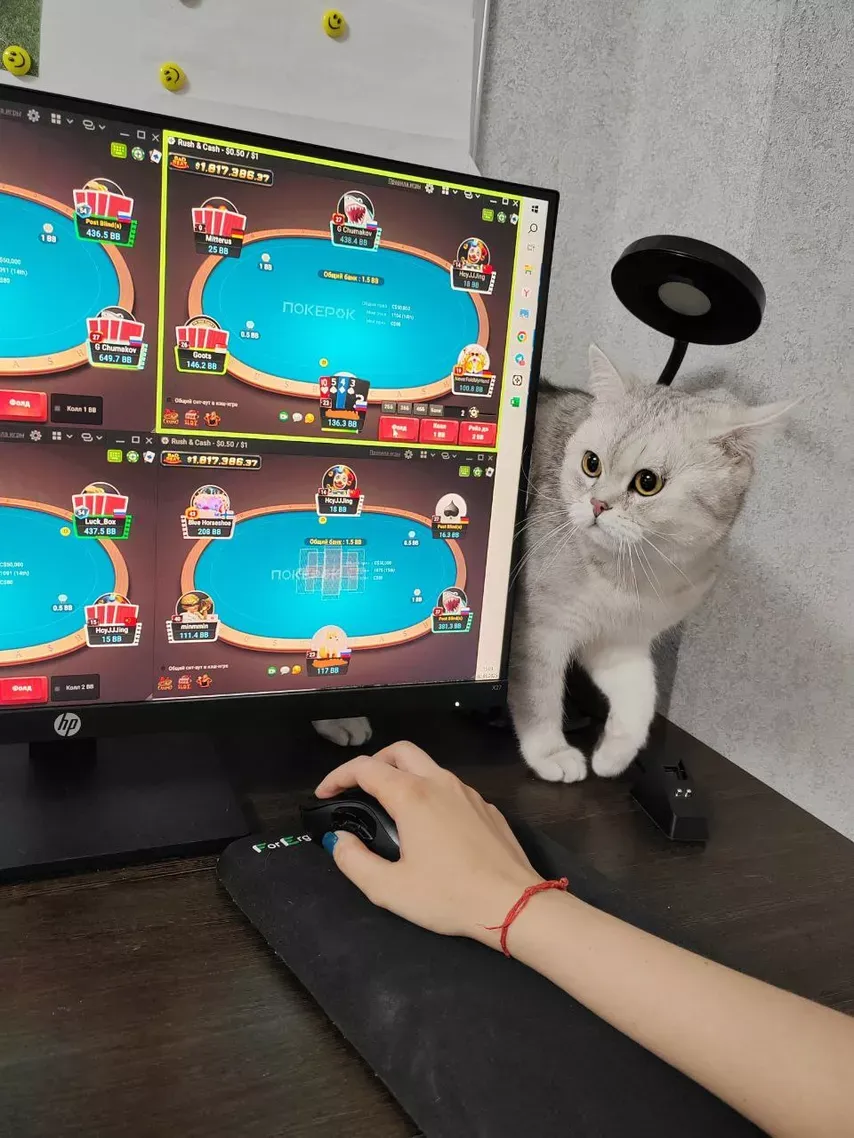
– Have you ever thought that if poker becomes your main activity, this enthusiasm might disappear?
– I thought about it, and last summer I took a long vacation. I didn’t work for two months, on the one hand, to rest, and on the other – to have a leisurely ride. By the end of the second month, I began to miss work and realized that I couldn’t give up work completely. I’ve been in the profession for 15 years now, and I don’t want to quit something that I’ve spent so much time and effort on. Work has become something of a habit for me, like brushing my teeth in the morning or a pleasant hobby that you’ve been doing for a long time.
Another question is whether it is possible to reduce the amount of work so that it becomes even more enjoyable, and to remove the moments that upset, frustrate or irritate. The problem is that if I remove everything that I don’t like, then my salary will be significantly, several times smaller. And I am not ready for that. It’s not that I am used to a luxurious life, but a certain level of comfort is necessary. It’s hard for me to imagine that I will start looking at prices in stores or refuse taxis for the sake of saving.
I decided to take poker more seriously, thinking that it would give me additional income, and at work I would be able to remove what I was not satisfied with. I always liked poker and after several years of grinding I can’t say that I was disappointed in it or cooled down.
To some extent, I approach poker as a job. Sometimes I don’t want to start a session, especially when I imagine the volume of the game that I have to handle, and this can be 14 hours of grinding. In such situations, the principle of “greed is stronger than laziness” works for me. I just need to start, score 10k points, and after that I will feel sorry for the effort spent. It will already be perceived as “what do you mean, I’m going to give my first place to someone!? No way!” And then I just need to play as much as it takes.
I have it like that in all my affairs, the main difficulty is to start. And it doesn’t depend on the specific activity, it can be interesting and beloved, but this first barrier is probably the most difficult.
– Did you somehow struggle with this fear or reluctance to start something?
– At one time, I probably read all the books on this topic – about procrastination, time management and productivity, I took a bunch of courses. All my childhood I was told that I was lazy, so I probably have a thing about this.
– You often write about this in your blog)
– Apparently, I'm still trying to prove to someone that it's not so. "Well, no, look, you see what a hard-working person I am, I definitely can't be called lazy."
Although in my heart I often call myself that, despite objective indicators – like 40 hours at work and about 40 hours at the desk per week. Many people think that I work a lot, but not me. It seems to me that you can add another 40 hours, then it will be normal)
– Did you find any methods from courses or books useful?
– I discussed this with a psychologist – I want to do this, and that, and the third, but for some reason I don’t. There is basically only one piece of advice here, and it sounds offensively simple – just go and do it. Don’t think, don’t plan, just go and do it. For example, if you start playing a race, don’t look at the lineups, don’t think about how many points the others have, but just start playing. This is, in general, the only thing that really works.
Or at work, for example, I have this problem – I don’t like filling out paperwork. Sometimes I have a gigantic mountain of reports that I look at with horror and think: “I don’t want to, I can’t, I won’t!” And here, too, this advice works great – just take it and do it. Almost always after this, I get an appetite for work, playing poker, or other activities. In most cases, I get into the swing of it and another problem arises – how to stop.
– Why do you think many poker players fail to achieve their goal? This often happens on the forum – a person wants to play 100 hours, for example, but plays not 80 or 90, but 50 hours. What can you advise here?
– Sit down and play. It seems to me that the reason here may be that a person has not fully understood his feelings and desires, his strengths and weaknesses. If a person is really interested, he will play. Perhaps he is stopped by some problems like an uncomfortable bankroll, a streak, difficult experiences or lack of confidence in his game.
If you have problems with playing the distance, then I would advise you not to set yourself the goal of playing 100 hours under duress, but to think about the reasons that are holding you back. They can be completely unexpected, for example, one of the reasons for my tilt, which I did not notice for a long time – it really bothers me when someone from the family is at home. Moreover, even if they do not distract me or bother me, the thought constantly swirled in my head: "Aha, they are probably unhappy that I am not playing Monopoly with them now, but buried in the computer and pressing buttons." It took me a lot of time just to notice this thought. At the same time, my husband and child in most cases do not think anything like this, but this obsessive thought very often led to a deterioration in the game and tilt.
A person who has difficulty playing the distance may discover such seemingly small things that really slow him down. It may be useful to talk to a psychologist.
– I understand that you have a similar problem, but not with the distance, but with working on the game.
– Here I need to make an amendment that it doesn't work out by my standards, perhaps for someone I will be a prominent theorist. But in general, yes, that's how it is – considering work, family and poker, it is very problematic to squeeze in theory purely in terms of time.
I can't do anything in measured doses. Many people, for example, read 30 pages a day and close the book. I can't do that, if I like the book, I won't put it down until I finish it. I do everything binge-reading. In order to sit down to analyze hands, I need to know that I have several hours at my disposal. Because in the process of analyzing, I will have a lot of questions. I can get stuck over any hand for an hour or more and dig into it for a long time, which is probably not very effective. That's why I rarely sit down to analyze.
– Perhaps this is also due to racing, as if theory is not necessary.
I don't advise anyone to play like me – neither races, nor zoom, and especially not zoom on PokerOK. You could say that this is the path of true masochists. There are much simpler methods – other rooms, applications, and even on PokerOK there are regular tables. But this format is convenient for me – I can't play in prime time, and when I can, the lineups are so-so.
To be honest, I don't know if this prevents the growth of limits. In principle, I have long had the opportunity to move to a higher limit, I almost every month add 50 BI of the current limit. Rather, my love for cashouts prevents me.
Another thing that stops me is that there are still quite a lot of stupid mistakes in my game – somewhere due to ignorance, somewhere due to carelessness. Why pay more money for these mistakes at a higher limit if they can be fixed cheaper.
– You wrote a lot in your blog about convenience and comfort. What exactly is important to you during the game, what purchases were you delighted with?
– I am a proponent of the idea that maximum comfort greatly helps in the game, and in life too. I think many people underestimate the impact it has on productivity.
For example, I am delighted with my mouse, it has six buttons and different sizings are filled in on them, it has become much more convenient to play. I fell in love with this mouse so much that I bought the same one for work, although there is no need for it there. In general, my workplace, both in the office and at home, is as comfortable as possible for me – a comfortable chair, a comfortable table, various little things, like the same mouse. In principle, I have nothing inconvenient, for me this is one of the main criteria when buying.
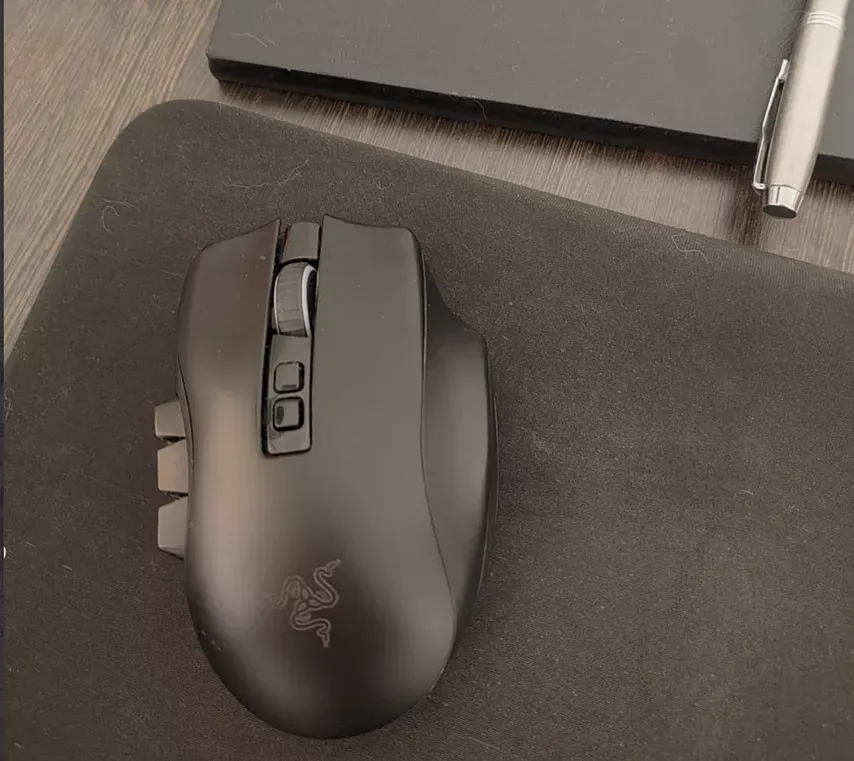
I also spend a lot of time cleaning. My work mood is made up of various little things. I realized that thoughts about small mistakes and things scattered around are spinning in the background and preventing me from concentrating. So lately I've been trying to make sure my home is really tidy. When you're riding and everything around is clean, convenient and comfortable, it brings pleasure. Well, or at least doesn't cause irritation.
Our Interview with a Zoom Legend – One Year Later
– Hi, Maria! We talked a year ago and you didn't want to quit your job. Tell me what's changed and why did you decide to become a poker pro?
– At the end of last summer, Yura Joke703 offered to analyze my game on stream, and then invited me to his fund. Then I finally realized that it is unrealistic to work, play and study theory, especially if the goal is to grow in limits. If earlier, playing PLO25-50, I had hopes that it is possible to combine all this, then after trying my hand at 100 and playing a couple of not very good sessions there, I realized that my bad game was due to general fatigue. At some point, I simply decided to put an end to my relationship with work.
I have been thinking about leaving for a long time, for several years now. Fatigue has accumulated – both from work and from combining it with poker. The decision was not spontaneous, although it may seem so from the outside.
– How did leaving your job affect your life?
– I have more free time and opportunities. Before, I had a strict schedule – let's say, if I don't sit down at the tables today, then the next opportunity to play a full race will come in five days. Now I have a choice. If I don't like the lineups or my condition, then I can easily postpone the game to the next day. Or even take several days off in a row. There are now an order of magnitude more opportunities and flexibility in the schedule.
– Has your approach to poker changed in any way? Has it become more professional?)
– I would like to say yes)
– You had difficulties working on the game, how are things now?
– Regular classes and the training schedule at the foundation really do discipline me. And in general, communication with the coach, and I train with NikolasDLP ( Ed. – The editor-in-chief of GipsyTeam recently accidentally met Maria’s coach at the airport, and he was telling me about his student with great pride ), has greatly advanced my understanding of the game, but I can’t say that my approach has changed dramatically. Rather, I am now at the beginning of the path, maybe I have become a little closer to the middle.
Habits change slowly and hard. My game was focused exclusively on leaderboards, but Nicholas and I constantly discussed that it was impossible to play for so long while maintaining quality. He almost managed to convince me)
Gradually, I am making adjustments to my strategy. Before, I was afraid to play for quality, like: "What if it doesn't work out? What if my inner blonde is not capable of this at all?" Trying to take quantity was more reliable in my eyes and postponed the answer to this question. It was more pleasant to live in this ignorance.
Now I'm slowly shifting to playing as well as I can, showing good play at the tables, but at the same time not losing sight of the skills that I've developed over the years. I like to play for a long time, and I'm good at it. Why not combine the two in one?
In May, Maria started an ambitious zoom marathon on PokerOK, which caused a lot of noise on our forum.
The goal was to win 100 buy-ins ($2,500) in PLO25 in two weeks (race rewards and rakeback counted).
In the blog, Fox accepted bets against herself, the result was $4,000 with odds of 1 to 1.
Brief summary of the marathon in the Heroes of the forum for May (about the Fox at the end)
Post with results after the completion of the marathon
– Let's talk about the marathon. How and why did you start it?
– I didn’t plan anything like this at first, it all happened spontaneously. A couple of months ago, Ch3snokov28 started streaming and in a month he made 100 buy-ins at PLO200. After leaving the fund, my bankroll dropped significantly, and after a streak at PLO100, my confidence in the game also dropped. I realized that I didn’t want to play above my usual limits yet, because any turn of the dashboard was very painful for me. I dropped to PLO25 and decided that I needed time to digest everything and get my game back. But at the same time, I had to restore my bankroll. Once, Nicholas and I were discussing hands, and he threw out the idea, more for fun, that it would be funny to hold such a marathon. We put this idea aside for a while, although it was spinning in my head. And so, after some thought, it all resulted in a proposal on the blog. Thanks to the guys who supported me.
– Why did you leave the foundation?
– The fund focused more on PLO5, which doesn’t interest me much, and after the streak on the hundred, I lost the desire to play high limits. Plus, considering that at that time I hadn’t worked for three months, a problem arose – money is not endless and doesn’t grow on trees. Sooner or later I would have to crawl into the pillow, and I had no such desire. Well, then there were already mercantile interests – to play lower limits, but from my own perspective it was simply more profitable. Not least of all, my departure was influenced by Nicholas’s decision not to continue cooperation with the fund.
– What was your schedule like during the marathon, how much more did you have to play?
– I didn’t play much more during the race. The only major difference was the number of days off between races. The schedule was two days of play/one day of rest.
– And how is it usually?
– I experimented a lot with different options and now I have come to 2-3 races a week. During the marathon, I had to play five races.
– I’ll quote one of the GipsyTeam editors: “How did it happen that one asshole almost ruined the marathon?”
– One of the readers posted a hand where, apart from a very loose 3-bet on preflop, everything else was done adequately. And he wrote sarcastically : “I checked it in the solver, everything was played correctly, just a cooler.”
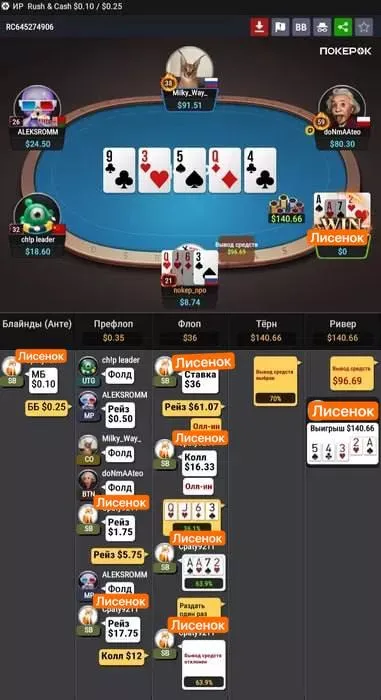
Some readers took this as an attempt to donate to me for unknown reasons. Although it was obvious to everyone in the know that the person was just a little bit of a preflop loser and nothing more. Well, and then it all went downhill in a completely unclear way.
This story really affected me. Both the accusations and the assumptions were, in my opinion, so ridiculous that I simply couldn't get my head around how people could seriously write such things. Ban someone from playing – on what basis? Or annul some hands. How can you decide who had what motives to play one way or another?
It's not really pleasant to play against someone who came to play deliberately. What is perceived as a gift from the outside can be much more complicated in reality. You start to wind yourself up and come up with all sorts of things, plus it's hard to figure out the ranges when you're being played against by a much wider group. As a result, paranoia arises that everyone is trying to outplay you and constantly executes.
The graph shows that I ended up playing that race poorly and lost the thread of the game. What was happening in the blog threw me off track. I tried to find the strength not to read the comments, but I couldn't, so I closed the blog for a while to end the squabble.
– What was harder to cope with – the pressure from the marathon deadlines, the accusations on the blog, or the fatigue?
– Probably, it was the accusations that shook me up the most. It wasn't the first time I had encountered fatigue, I know how to cope with it. But the accusations came as a surprise to me. Considering my heightened sense of justice, it took me at least a few days to emotionally distance myself from all of this.
The deadlines were certainly a pressure, but if it weren't for the accusations, I think I would have survived it all much easier. Everything came at me at once – the stress of the accusations, the tight deadlines, and the fact that my game fell apart in the middle of the marathon. But I managed to cope, even though sometimes I thought, "Oh my God, everything is lost!"
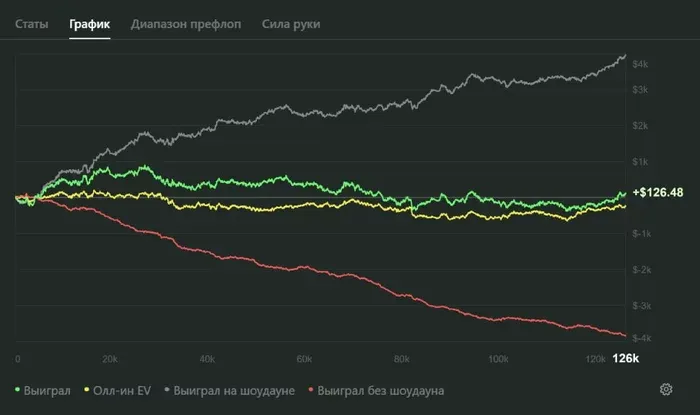
– How did you relax during the marathon?
– In general, as usual. Although the schedule turned out to be a bit over the top, at the moment I perceived it all as if I was hit by a total downstreak on all fronts.
Initially, I bet on playing a lot and dragging the marathon thanks to victories in the leaderboard, that is, I was afraid to play for quality. Now, on the one hand, it seems like a mistake to me, but if I rewind, I would have chosen the same plan.
Before the marathon, the prizes for the leaderboard were increased (at PLO25 it was $240 – now it's $300). I thought it was good for me, since I can play for at least a day and I'm not afraid of competition. But I underestimated my strength – yes, I can play for a day and win first place once or twice, but without proper rest, doing it for the third or fourth time almost in a row is many times more difficult. And the increased competition also seriously undermined my expectations for the rewards for the leaderboard.
On the first day I failed to take the leaderboard, but it was a conscious decision – the opponent was persistent, I had already crossed paths with him – he can play 20 hours a day, and even with a huge gap from third place he will still fight for first place to the last. Remembering this, I decided to save my strength and not get involved with him.
The next day the story repeated itself, only with different opponents.
By the third race, the showdown in the blog began...
And so, every day something bothered me.
The turning point happened when Nicholas suggested dismantling the base. I resisted for a long time, it seemed that I already knew what I needed to watch out for, and I didn’t see much point in an outside perspective. I also strictly limited all communication during the marathon, since unnecessary emotions, even positive ones, are not needed against the background of fatigue. When I enter a working state, any outside interference can throw me off track.
But by the middle of the marathon I agreed to the analysis. First I collected all the sessions and looked through the database myself, and when we called Nicholas, he pointed out several things that I hadn’t noticed myself. It turned out that I was sagging here, and here, and here I wasn’t like myself at all. This filled me with sporting anger, I wanted to show that I could play well too.
The next race, the seventh, I played well. Overall, I am only happy with two sessions during the marathon, this is one of them. There was no tilt, no terrible decisions. The only thing that threw me off track was that PokerOK suddenly stopped opening. I planned to continue the game in the evening, but I was unable to log into the client.
In the end, I returned to a more comfortable game – I took breaks when I needed it, tried not to monitor the leaderboard, so as not to wind myself up once again. By the end of the marathon, I coped with my emotions and calmly opened the table. I would have liked this path to be shorter, but I underestimated the competition and it took me time to accept the fact that I could not take first place for several days in a row.
– In your summary, you wrote that you didn't choose the best tactics in the races. What kind of tactics are there anyway and how should you have chosen them?
– I underestimated the increased competition due to the increased prize money. Looking back, I would have taken more days off somewhere in the middle of the marathon and would not have broken my established regimen for the sake of racing in order to take first place at any cost.
I have this obsessive thought that I have to take first place. And any obsessive thoughts that haunt you always affect the quality of your game. Instead of spending energy on making decisions, it goes to some nonsense. The same thing with breaks. Instead of taking a normal break and going to have some tea, you sit at the tables thinking: “I can’t rest now, otherwise the gap will increase and I’ll have to win it back at night.” But why win it back? And what will be the losses in profit due to fatigue…
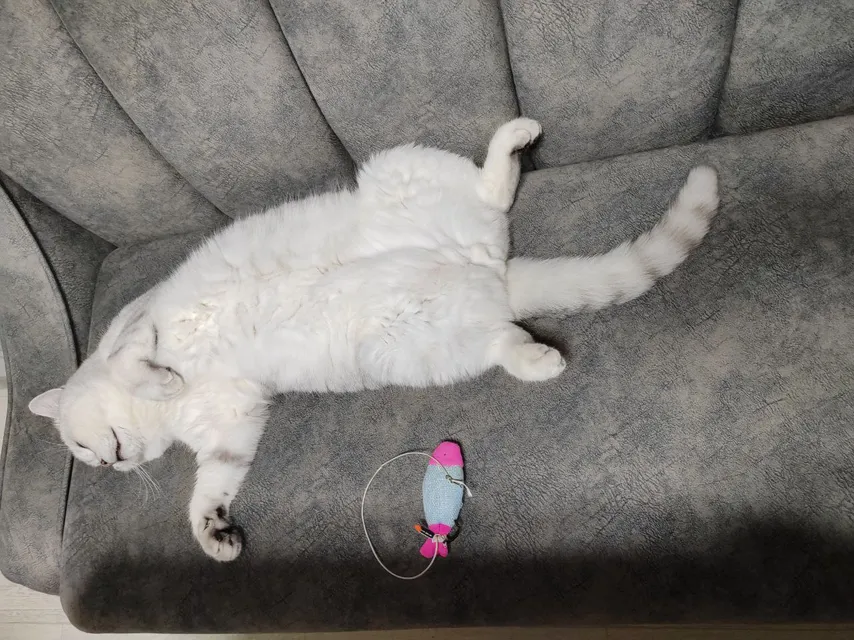
– If you were offered a marathon of 100 buy-ins NL25 by EV or by profit, would you agree? How long do you think it would take to complete such a marathon?
– It’s difficult… In racing, I have a clear understanding of my expectations. I would assume that I would have done it in a month. At least, I want to believe so. In theory, I could do it, but definitely not in the near future.
– What did you learn from this marathon and how did it influence you?
– It was an interesting challenge, I generally like all sorts of challenges, when you aim for a high bar. I think that's one of the reasons why I liked racing so much, there's a lot of struggle and overcoming yourself.
Being immersed in the game during the marathon gave me a lot of valuable experience. My problem areas in the game were highlighted; moments that I haven’t worked on enough. For example, when faced with a bad run or pressure, I start to sag. In addition, I began to better notice the triggers that can cause me to tilt. At the same time, the marathon clearly showed that even when I’m tired, I can cope with all this.
I also realized once again that the most banal things – daily routine, normal nutrition, sleep, exercise – are decisive. Things that everyone knows about, but does not do.
– What from this list do you have problems with?
– The hardest things for me are those related to physical activity. Unfortunately, I can’t systematize my activities in any way. I spend a long time getting ready to do something, I try, and then any more or less unexpected event completely throws me out of my hard-won routine.

– You wrote that you are sure that one of your main opponents plays from his account alone. And do you often have suspicions that they play from some account in shifts?
– I have never had such suspicions. I don’t know how things are in Hold’em, but among the people I’ve met at different limits, I see that the quality of everyone’s decisions deteriorates towards the end of the race. If someone played in shifts, then the style would change during the day. PLO25 has a large pool, but the understanding of the game of those who constantly grind races is still there. I have never had the feeling that one person was playing with me, and then bam and it was as if he was replaced. I admit that this is possible, but it seems to me that in terms of money it is simply not profitable.
– Isn't there something like SnG used to have – cartels and scheduled play so as not to interfere with each other? Like I play Tuesday and Friday, and you play Wednesday and Saturday.
– If there is, I don't know. Sometimes I get asked in the client chat if I plan to play for first place and I answer honestly. Sometimes a person just doesn't get involved if I plan to play hard.
There aren't many people who play for first place in Omaha and I don't think there's any need to discuss anything, plus I often see fights where players in second or third place play until the end despite having a huge lead.
– What advice can you give to aspiring leaderboard grinders?
– I would, first of all, advise not to go this way. There are much simpler, shorter and faster roads. Zoom at some point seems more attractive, for example, when you want to play for a short time – you can stop at any moment, and then just as quickly return. This is, of course, very convenient, but you have to pay for this convenience, and for beginners, it seems to me, this price is too high.
If you have a goal to develop in the game, then you need to use critical thinking more often. Not just mindlessly play the distance, but try to understand and work through the experience that we get at the tables – look for mistakes, think about why they occur and how to avoid them. At one time, this was enough for me to crawl to PLO25 on my own.


















